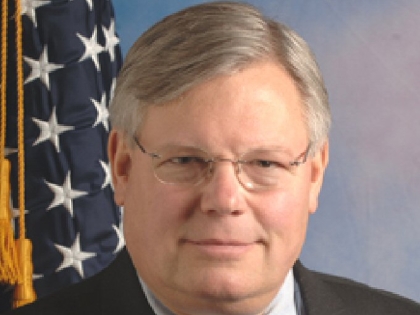
Re: Park Alienation And Violations Of The New York State Hudson River Park Act
Dear Colleague,
Last summer, the New York City Department of Sanitation released its Solid Waste Management Plan (SWMP), calling for two facilities that would violate the Hudson River Park Act (HRPA) passed by the State Legislature in 1998.
In one instance, the City plans to alienate parkland by putting a marine transfer station for commercial recyclables on the Gansevoort Peninsula (near 14th Street), the largest landmass in the park. This is the second time the City has tried to alienate this part of the Park—in 2005 I was a plaintiff in a lawsuit against the New York City Department of Sanitation to force it to abide by the HRPA, and remove its facilities presently located there illegally. The suit ended in a settlement, and the City agreed to remove its sanitation facilities from the peninsula by 2012. With the SWMP, the City has once again flagrantly disregarded this hard-fought-for state legislation.
This is also the case with the City's plans to expand its sanitation facilities on Pier 99 at West 59th Street. Although HRPA allows the City to maintain its existing sanitation facility there, the SWMP would violate the Act by taking over additional park land, and changing the facility from municipal waste to commercial waste.
To the City's credit, its SWMP addresses the important need for borough equity in dealing with residential garbage, and seeks to right the historic problem of economically disadvantaged communities having to shoulder a disproportionate share of municipal facilities. These goals are essential, as they address serious problems in New York City, and I sincerely appreciate efforts on their behalf.
That is why my office has been working with a task force of other elected officials and community members to identify other potential locations in my district—on the West Side of Manhattan below 96th Street—to site these sanitation facilities.
The City's "take it or leave it" attitude has dismissed all alternative locations without any substantive review. While they may not each be a perfect solution, I fully expect the City to give these—and others—their due consideration before we as Legislators are asked to amend the HRPA so our parkland can be alienated.
The Hudson River Park is in my district, but people from all over New York City and the region enjoy its benefits. Moreover, every park in every district in the State would be made vulnerable by the dangerous precedents set by implementing the City's plan, which views any park as a potential construction site.
Furthermore, the City is seeking to alienate parkland without any possible remediation—which has been the standard in such situations up until now. In addition, this would be done over the objections of most local elected officials, including all of the area's State Legislators, another precedent that would affect not only us, but all elected officials current and future.
The Hudson River Park was created in part to provide the West Side neighborhoods south of 59th Street with much-needed parkland, and also to compensate them for the many municipal facilities that had long been sited on their waterfront. The Hudson River Park already has more than its share of non-park intrusions, such as: the municipal paper recycling plant at Pier 99, the barge refueling facility for a Con Edison power plant at Pier 98, the passenger ship terminal at Piers 88-94, the Circle Line and ferry piers at Piers 79-83, ventilation towers for the Holland Tunnel and the Lincoln Tunnel, the City tow pound at Pier 76, the 30th Street heliport, the privatized Chelsea Piers complex, planned commercial development at Pier 57, the marine company fireboat at Pier 53, a massive parking garage on Pier 40, etc. This new park should not be required to shoulder these two additional sanitation facilities.
It is also worth noting that Manhattan differs from the other four boroughs in that its tremendous commercial density yields an exceptional amount of commercial waste—much of which is generated by people who live elsewhere. I agree that the borough can shoulder more of the burden, as it does without complaint in so many other ways. But that does not mean that it should give up a key part of the Hudson River Park to take on more than its fair share.
I am not suggesting that the City put these facilities in any one else's part of town. The City Administration has made the wrong choice—violating state law and setting dangerous precedents for all parkland in the State—without reviewing available alternatives on the West Side of Manhattan below 96th Street.
I am requesting your support to ensure that the City selects sites that are legal and meet the broadest range of goals. I believe that alternative sites offer a greater opportunity for a more comprehensive, forward-thinking approach to waste transfer, and want the City to select appropriate, legal locations for these facilities on Manhattan's West Side. Therefore, I respectfully request that you join me in rejecting any proposal for legislation to alienate parkland within the Hudson River Park, or to amend the Hudson River Park Act to accommodate the City's Solid Waste Management Plan.
If you would like to discuss this issue, I welcome the opportunity to do so.
Sincerely,
Thomas K. Duane
29th Senate District